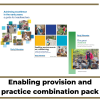Letter to the next Prime Minister
The letter below sets out our key asks for the next government.
The Department for Education (DfE) have published their response to the consultation on potential changes to staff:child ratios. The consultation received responses from nearly 10,000 parents, around 3,000 providers from across the sector, virtually all local authorities and many charities and sector organisations.
The document acknowledges that there was overwhelming opposition to the proposal to change the staff:child ratios for 2-year-olds from 1:4 to 1:5, but have opted to go ahead anyway. Similarly, they have decided to go ahead with “clarifications” that provide childminders greater flexibility on ratios when caring for siblings or their own children, despite the majority of respondents opposing this.
The DfE states:
The proposed changes to ratios would continue to be a statutory minimum requirement
for settings, and there will be no obligation on providers to operate at the statutory
minimums – i.e. providers can continue to work to tighter ratios if they decide that is best
for the children and staff at their setting. The Government trusts that setting managers
know their children and their staff best, and fully supports the judgement of setting
managers and practitioners to work at the ratios that are right for the individual needs of
their staff and children.This change to two-year old ratios will provide managers with the flexibility to utilise staff
in a more efficient and effective way, and setting managers will ultimately have the choice
to work to their preferred ratio (as long as this meets statutory minimum requirements).
Providers must continue to ensure that staffing arrangements must meet the needs of all
children and ensure the quality of care, safety and security of children is maintained.
Providers must ensure that children are adequately supervised, including whilst eating,
and decide how to deploy staff to ensure children’s needs are met.
Unfortunately while the entitlements remain significantly underfunded, settings will remain under pressure to implement these ratios to make the books balance. Our members already report concerns that financially they can only operate at minimum ratios, despite the impact this has on quality, particularly for children with additional needs. We deplore this decision which prioritises cost and “flexibility” over quality and children’s needs and disingenuously passes on the responsibility to providers to operate both safely and within available funding.
The proposal to amend the definition of “adequate supervision while eating” to a staff member being within sight and sound instead of sight or sound of children while eating received agreement from the majority of respondents, and will be implemented by government.
The government has also indicated that it will review other potential flexibilities such as including staff working towards a qualification within ratios. We argue that government must prioritise quality and address the pipeline of qualified practitioners and the recruitment and retention crisis, not further water down the requirements for workforce qualifications which can only further diminish the quality of provision. We know that low quality provision is a poor investment, and makes no economic sense for government. Our young children deserve and need the best possible start, with early education delivered by well-qualified, well-supported staff.

The letter below sets out our key asks for the next government.
On 10 June, Labour announced their plans for “over three thousand new nursery classes across England to open up access to childcare hours for families”,
The Lib Dems have published their manifesto, including commitments to incorporate the UN Convention on the Rights of the Child into UK law and to
Today, Friday 17 May, the Early Education and Childcare Coalition (EECC) has launched its new manifesto, with proposals to rescue and reform England’s early education
A new campaign to boost recruitment to the early years sector in England is being launched today by the government. The government press release says:
DfE have issued an update to address the issue of parents wishing to claim their codes for the new entitlements who cannot do so because
UK early years curricula England The Early Years Foundation Stage statutory framework applies in England for early years provision for children from birth to 5.
The Department for Education has today published the two versions of the EYFS Statutory Framework which will apply from 4 January 2024: These incorporate the
The Department for Education has today published its response to the EYFS consultation conducted in the summer. The changes will be implemented from January 2024
by Katherine Gulliver Introduction Early Education was recently asked to review the special educational needs and/or disabilities (SEND) provision in the early years within one
For many of us, the path we’ve taken in our careers can often be traced back to the passions and talents of our childhood and
Clare Devlin, Early Education Associate What aspects of physical development should we focus on within the Early Years Foundation Stage (EYFS) and other early years
In a speech today, Kier Starmer will set out Labour’s plans to expand opportunity via five “missions” including “Early years reform – to boost child development with an
The Department for Education (DfE) is currently consulting on proposals to amend the Early Years Foundation Stage. They propose relaxing the requirements around the minimum
by Dr Jo Albin-Clark, Edge Hill University and Dr Nathan Archer, Leeds Beckett University Inspection in the news Being involved in education in England involves
by Kayla Halls, Early Years Research Fellow at Middlesex University & Mona Sakr, Senior Lecturer in Early Childhood at Middlesex University’ Leaders in the early
Today, teachers from the National Education Union are striking, including many working in nursery and reception classes. In the last week, the Department for Education
by Amanda Ince and Liz Bullough, UCL Institute of Education “I want to be an inspiring leader who can inspire my colleagues in my setting
Ofsted’s latest annual review highlights the impact of recruitment and retention challenges and finds a link between inspection outcomes and the proportion of graduates in
The open letter below was sent to Ofsted in November 2023. Download Ofsted’s response We the undersigned are writing to you about the recently published
by Clarissa Frigerio Why are there so few men teaching in the early years? I have worked in the profession for almost 9 years, and
It could be argued that teachers who move into teaching reception for the first time, face the same challenges as the children themselves as they start in reception.
The tenth early years minister in ten years, Kelly Tolhurst, is now in post. It’s good news that early years is part of a Minister
External Vacancies Internal Vacancies To advertise here, contact office@early-education.org.uk Organisation and multisite members may advertise vacancies for free as part of the membership package. Download Job advertisement









Early Education
2 Victoria Square
St Albans
AL1 3TF
T: 01727 884925
E: office@early-education.org.uk